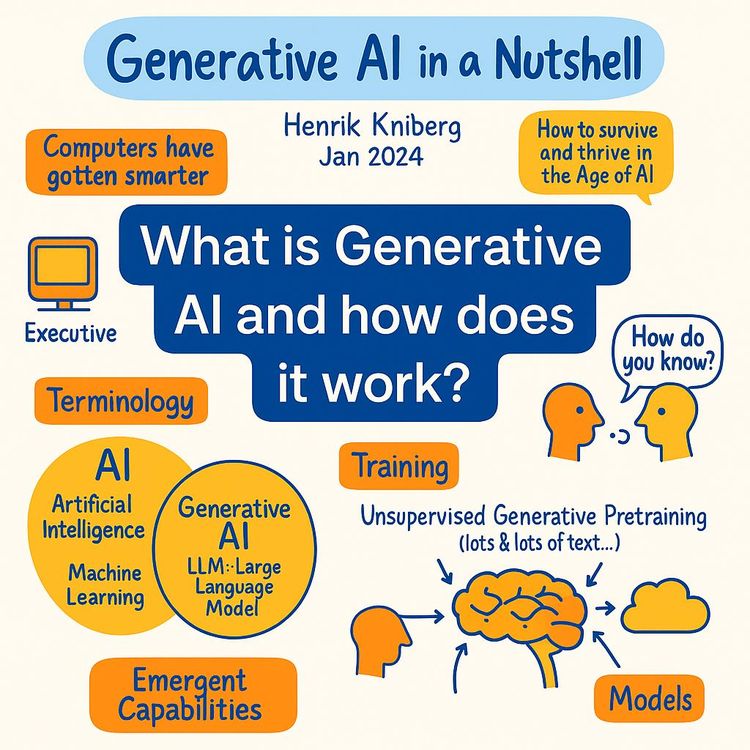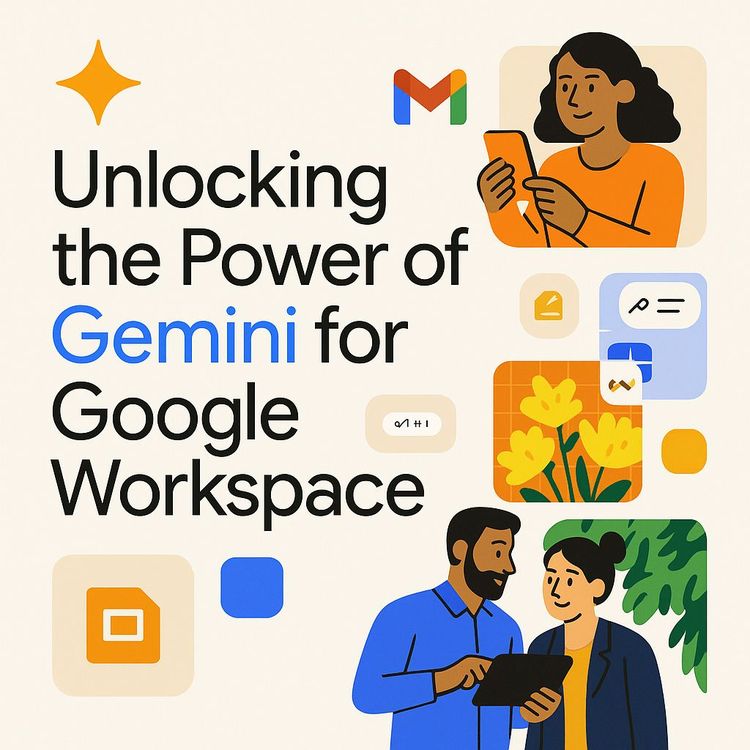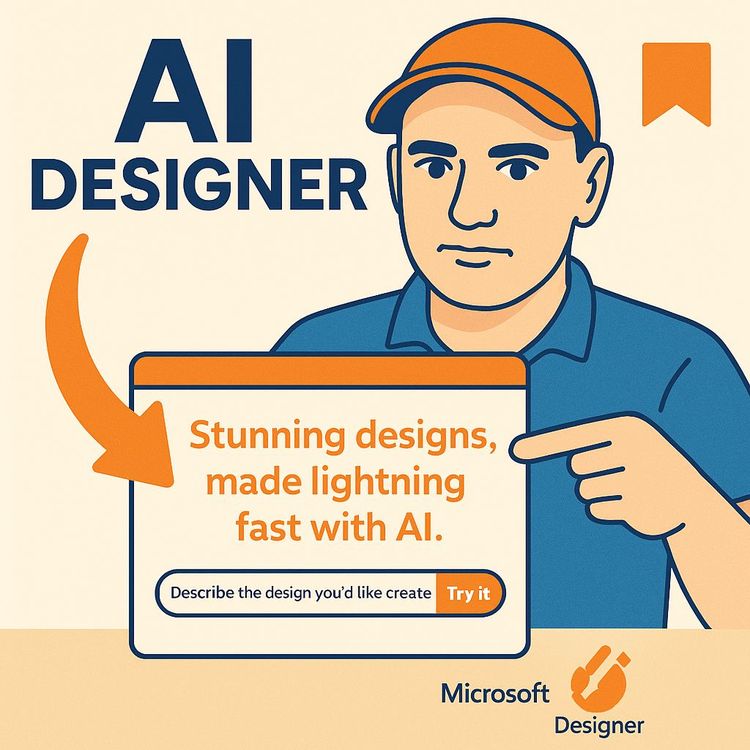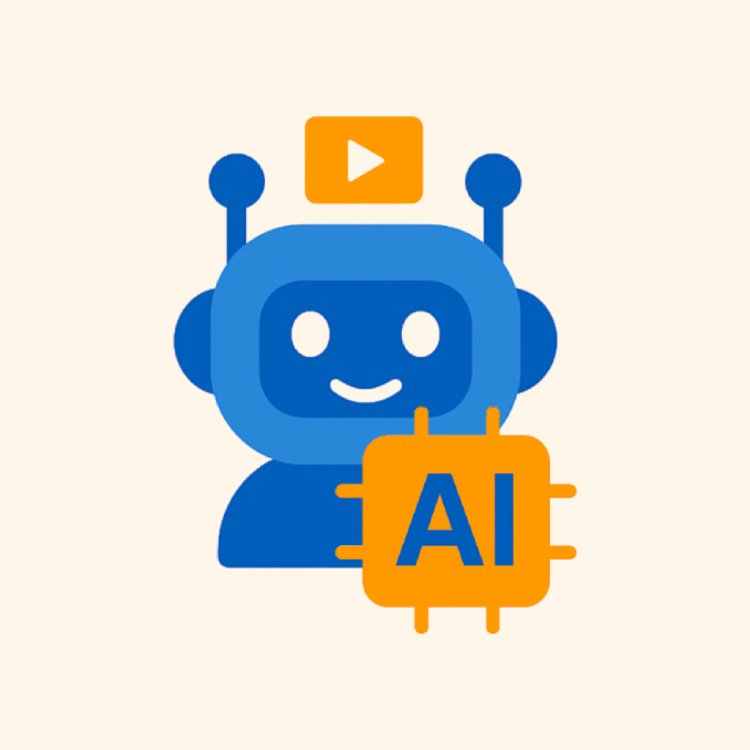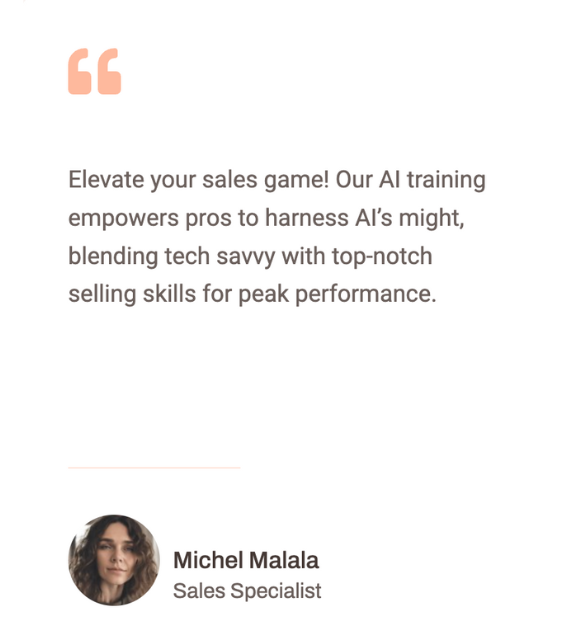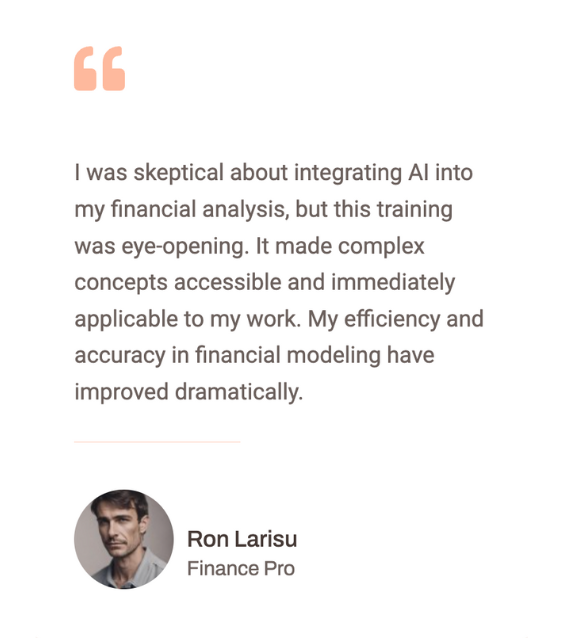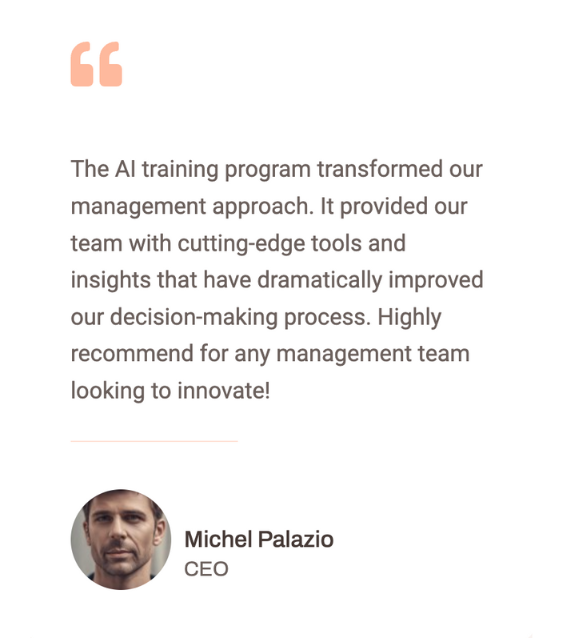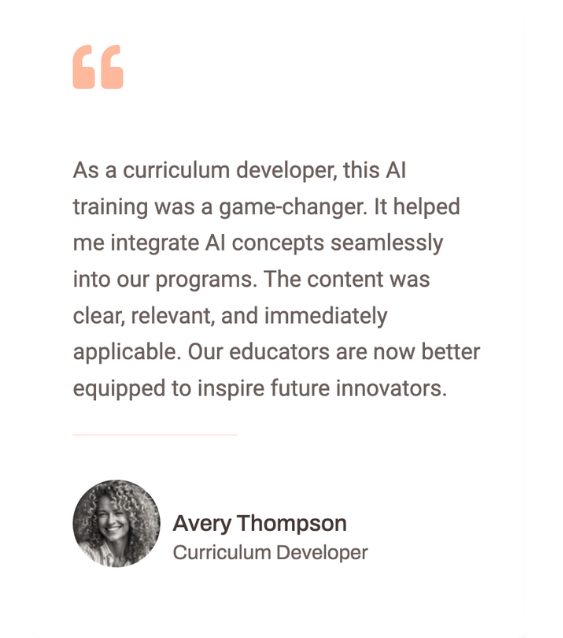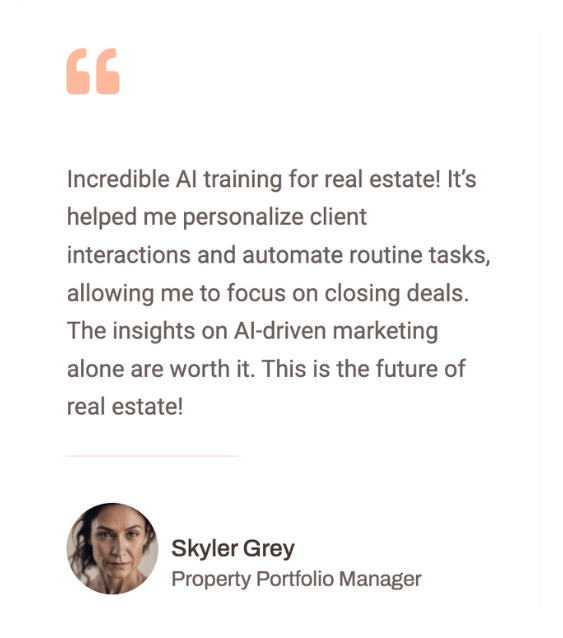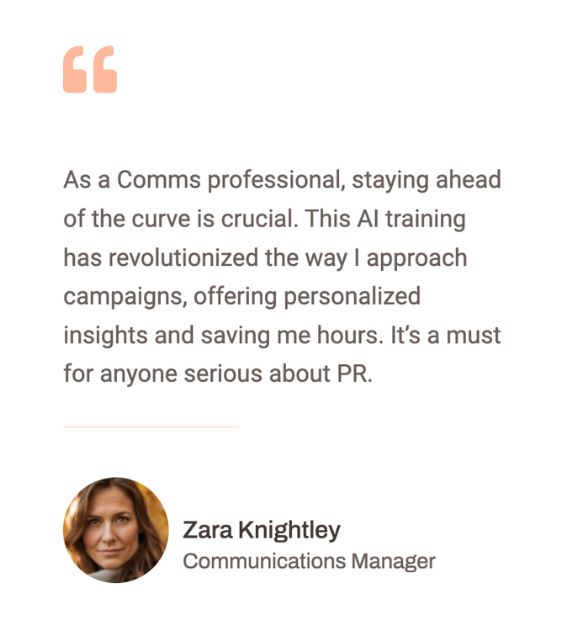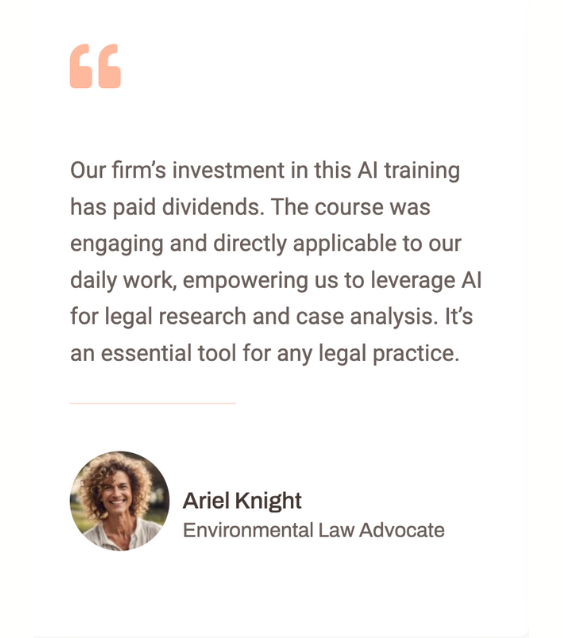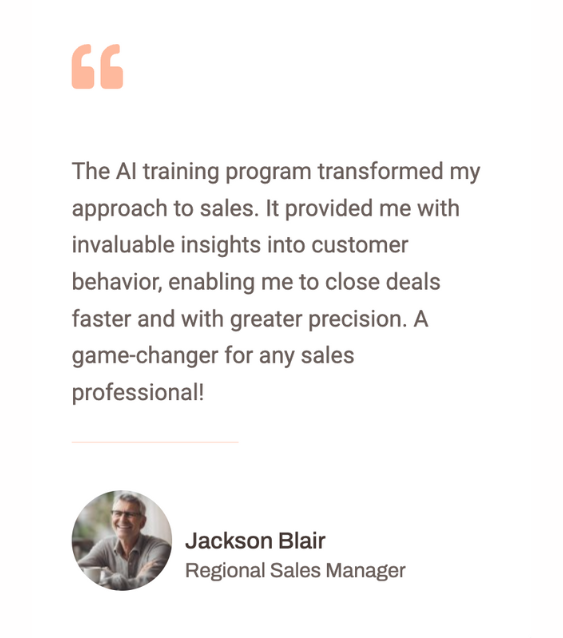Video Course: Part 36 - Using AI in Enhancing Employee Experience
Embark on a journey to transform your organization's work environment with AI. Discover how AI reshapes employee experience, from personalized support to seamless communication. Equip yourself with insights to create a thriving, engaged workforce.
Related Certification: Certification: Leveraging AI to Enhance Employee Experience in the Workplace
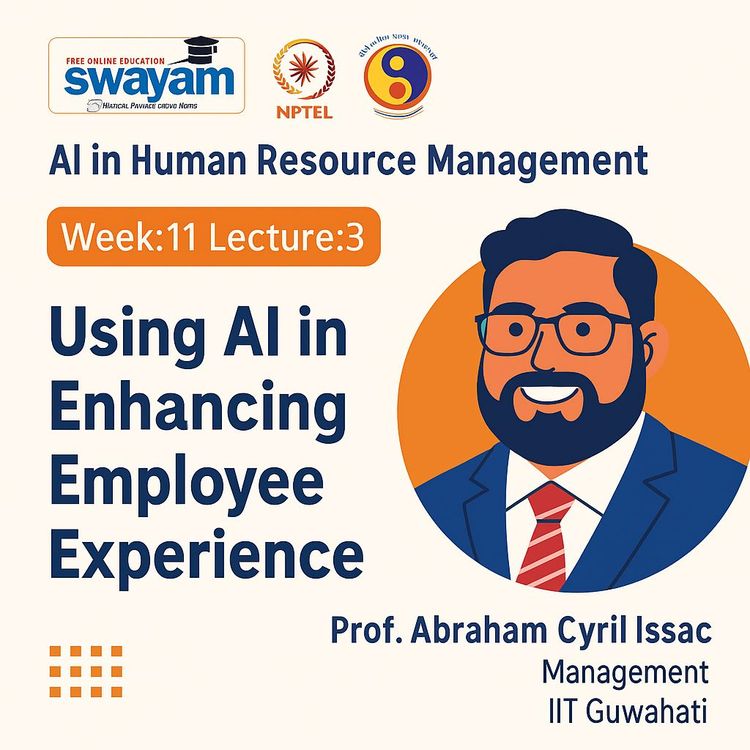
Also includes Access to All:
What You Will Learn
- Explain the evolution and value of employee experience
- Identify AI applications across the employee lifecycle
- Design personalised AI-driven learning and wellbeing interventions
- Use data and predictive analytics to reduce turnover and burnout
- Recognise and mitigate AI risks such as bias and privacy
Study Guide
Introduction
Welcome to the comprehensive guide on 'Using AI in Enhancing Employee Experience'. This course is designed to equip you with the knowledge and tools to understand how Artificial Intelligence (AI) can transform the employee journey within an organization. As businesses strive to create more engaging and supportive environments, AI emerges as a powerful ally in redefining what employee experience means. This course will delve into the evolution of employee experience, the role of AI in this transformation, practical applications, and the challenges that organizations may face. By the end of this guide, you will have a robust understanding of how to leverage AI to enhance the employee experience effectively.
Evolution and Importance of Employee Experience
Employee experience has evolved significantly over the years, shifting from a transactional view of employees as mere "machines" to a more holistic understanding of their journey within an organization. This evolution is driven by several key factors:
Global Competition for Talent:
Organizations today compete globally for skilled professionals. Beyond competitive salaries, they must offer superior employee experiences to attract and retain top talent. For instance, tech giants like Google and Microsoft have invested heavily in creating innovative workspaces and flexible work policies that enhance employee satisfaction.
Technological Advancements:
The integration of technology in the workplace has raised expectations for intuitive and efficient tools that enhance productivity. Companies like Slack and Asana have revolutionized how teams collaborate, making communication seamless and effective.
Work-Life Balance:
With employees increasingly valuing work-life integration, organizations are challenged to support personal well-being alongside professional obligations. Dr. Sisak emphasizes that without proper work-life balance, employee performance will not be optimal. Companies like Buffer have adopted a fully remote work model, allowing employees to balance personal and professional life better.
Diverse Workforce:
As the workforce becomes more diverse, organizations must tailor experiences to meet varied expectations and needs. This involves fostering an inclusive environment where all employees feel valued and supported. For example, Salesforce has implemented extensive diversity and inclusion programs to create a more equitable workplace.
A positive employee experience is crucial for several reasons:
Increased Employee Engagement:
Engaged employees are more productive and contribute positively to the organization's success. For example, companies like Zappos have seen increased engagement through a focus on company culture and employee satisfaction.
Enhanced Retention Rate:
Employees who feel valued and supported are more likely to stay with an organization, reducing turnover costs and preserving institutional knowledge. Netflix, with its strong focus on employee autonomy and responsibility, boasts a high retention rate.
Boost in Productivity:
Satisfied employees are more likely to perform at their best. Companies like Adobe, which prioritize employee development and satisfaction, often see higher productivity levels.
Stronger Employer Brand:
A positive employee experience translates into a better reputation, attracting top talent. For instance, Patagonia's commitment to social responsibility and employee welfare enhances its employer brand.
Higher Customer Satisfaction:
Engaged employees are more likely to deliver exceptional customer service, as seen in companies like Ritz-Carlton, known for their outstanding customer experience driven by employee engagement.
The Role of Technology and AI in Enhancing Employee Experience
AI is transforming the landscape of employee experience by streamlining processes, personalizing support, and improving overall job satisfaction. Let's explore how AI contributes to different aspects of the employee journey:
Communication and Collaboration Tools:
AI provides insights into employee sentiment from surveys and interactions, helping managers identify areas for improvement. For example, AI-driven platforms like Microsoft Teams use analytics to understand team dynamics and suggest improvements.
Instant messaging tools like Slack and video conferencing platforms like Zoom facilitate real-time communication, enabling teams to collaborate effectively regardless of location. Project management software such as Asana and Trello streamlines workflows and task management.
Cloud computing and virtual office solutions enable remote work, helping remote teams maintain a sense of presence and engagement. Companies like Automattic, which operates WordPress, have successfully implemented cloud-based solutions for their distributed workforce.
Personalisation and Customisation:
AI-driven tools can create customized learning pathways tailored to individual employee needs and career aspirations. For instance, platforms like LinkedIn Learning use AI to recommend courses based on user interests and career goals.
Employee self-service portals and mobile apps provide personalized access to information, resources, and benefits. AI and data analytics, including sentiment analysis, help organizations tailor the work environment and development opportunities to individual preferences.
Learning and Development:
E-learning platforms, webinars, and training modules enable continuous learning accessible anytime, anywhere. AI platforms like Coursera analyze skill gaps and create customized learning paths for career advancement.
Feedback and Engagement Mechanisms:
Pulse surveys and feedback tools allow organizations to gauge employee sentiment and engagement in real-time. Recognition platforms like Bonusly facilitate peer-to-peer recognition and rewards, boosting morale.
Wellness and Well-being Programs:
Health and wellness apps promoting mental and physical well-being, such as fitness tracking and meditation apps, can be provided. Technology enables flexible work options and better workload management, improving work-life balance. Companies like Fitbit offer wellness programs to enhance employee health and productivity.
Onboarding and Offboarding:
Digital onboarding solutions streamline the process for new hires. Technology facilitates more effective offboarding processes, collecting valuable insights through exit interviews.
Data-Driven Decision Making:
Leveraging data analytics allows for informed decisions regarding workforce planning, employee engagement, and performance management. Predictive analytics, using insights from employee data, can help predict turnover and identify at-risk employees.
Diversity, Equity, and Inclusion (DEI) and Belonging:
Bias reduction technologies can assist in unbiased hiring and performance reviews. Inclusive communication platforms offer translation services and accessibility features, promoting a more equitable workplace.
Challenges and Considerations
While AI offers significant benefits, its implementation also presents challenges:
Data Privacy:
Ensuring the security of personal employee information is vital. Organizations must implement robust data protection measures to safeguard employee data.
Bias in Algorithms:
Organizations must be vigilant about biases arising from AI algorithms that could affect hiring or performance evaluations. Regular audits and transparent algorithmic processes are essential to mitigate bias.
Employee Resistance:
Effective change management strategies are necessary for the successful adoption of new technologies. Providing training and support can help employees embrace AI tools and reduce resistance.
The Future of AI in Enhancing Employee Experience
The future of AI in enhancing employee experience is promising, with several emerging trends:
Emerging Technologies:
Generative AI is highlighted as a potential avenue for advancement, offering new possibilities for creativity and problem-solving within the workplace.
Optimizing the Hybrid Work Environment:
AI will play a key role in optimizing experiences for hybrid work models, ensuring seamless collaboration and communication between remote and in-office employees.
Hyper-Personalisation:
AI will enable organizations to tailor experiences to individual employee needs more effectively than ever before. By analyzing data from various touchpoints, AI can customize learning paths, career development, and even compensation based on individual preferences and performance. This is expected to boost satisfaction and retention as employees feel more recognized and valued.
Predictive Analytics:
AI's ability to analyze vast data sets will allow organizations to predict employee turnover and identify those at risk of burnout. Proactive measures, such as personalized support programs and workload adjustments, can then be implemented to retain talent and minimize loss.
Integration of AI Tools into Daily Workflows:
As employees increasingly use AI tools, companies must ensure seamless integration to maximize benefits and minimize disruption. Training and guidelines are crucial for effective and non-overwhelming use.
Conclusion
In conclusion, AI holds great potential for enhancing employee experience by offering personalized, efficient, and engaging interactions throughout the employee lifecycle. By thoughtfully applying AI tools and strategies, organizations can create a more supportive and productive work environment. As you move forward, consider how you can integrate AI into your organization's processes to enrich the employee journey and foster a thriving workplace. Remember, AI is not a replacement for human interaction but a powerful tool to augment and empower it.
Podcast
There'll soon be a podcast available for this course.
Frequently Asked Questions
Introduction
Welcome to the FAQ section for the 'Video Course: Part 36 - Using AI in Enhancing Employee Experience'. This resource is designed to provide comprehensive answers to common questions about how AI can transform the employee experience. Whether you're new to the topic or an experienced professional, you'll find valuable insights and practical advice to help you leverage AI effectively within your organisation.
What exactly is meant by 'employee experience' and why has it become such a critical focus for organisations in recent years?
Employee experience encompasses every interaction an employee has with their employer, from the moment they consider a job opportunity through their entire tenure and even beyond as alumni. This holistic view goes beyond traditional notions of employee engagement and job satisfaction. It has become crucial due to several factors, including global competition for talent (where organisations must offer more than just salary), technological advancements that have raised employee expectations for intuitive and supportive tools, a growing emphasis on work-life balance as vital for optimal performance, and the increasing diversity of the workforce requiring tailored and inclusive experiences.
How can Artificial Intelligence (AI) specifically contribute to enhancing the employee experience throughout the employee lifecycle?
AI transforms the employee experience by streamlining processes, personalising support, and improving overall job satisfaction. This can be seen in various ways: AI-powered communication and collaboration tools analyse sentiment and engagement levels, instant messaging and video conferencing facilitate real-time connection, and project management software enhances teamwork. AI also enables personalised learning paths, offers tailored information through self-service portals, analyses feedback to customise work environments, and supports well-being programmes through dedicated apps and resources. Furthermore, AI streamlines onboarding and offboarding processes and provides data-driven insights for informed decision-making in workforce planning and retention.
What role do communication and collaboration technologies, particularly those enhanced by AI, play in improving employee experience?
AI-driven communication and collaboration tools significantly enhance employee experience by fostering a more supportive and connected work environment. They can analyse feedback to identify areas needing improvement, while instant messaging, video conferencing, and project management platforms facilitate real-time communication, streamline workflows, and improve task tracking regardless of geographical location. Remote work capabilities, powered by cloud computing, offer flexibility and improve work-life balance, and virtual office solutions help remote teams maintain a sense of presence and engagement.
How does AI facilitate personalisation and customisation of the employee experience, and what are the benefits of this approach?
AI-driven tools can create customised learning pathways tailored to individual employee needs and career aspirations. Employee self-service portals and mobile apps can offer personalised access to information, resources, and benefits. AI and data analytics, including sentiment analysis, help organisations tailor the work environment, support, and development opportunities to individual preferences. This hyper-personalisation leads to increased employee satisfaction and retention as individuals feel more recognised and valued, ultimately boosting their engagement and performance.
In what ways can technology and AI support employee learning, development, feedback, and overall well-being within an organisation?
Technology enables continuous learning through online courses, webinars, and training modules accessible anytime, anywhere. AI-driven platforms can analyse skill gaps and create customised learning paths, promoting career advancement. Feedback and engagement mechanisms, such as pulse surveys, allow organisations to gauge employee sentiment in real-time. Recognition platforms enhance morale, while health and wellness apps promote mental and physical well-being. Technology also supports work-life balance initiatives by enabling flexible work options and better workload management.
What are some key challenges and considerations that organisations must address when implementing AI solutions to enhance employee experience?
Implementing AI for employee experience comes with challenges. Data privacy is paramount, requiring robust security measures for personal information. Bias in AI algorithms can affect hiring and performance evaluations, necessitating vigilance and mitigation strategies. Employees may resist adopting new technologies, highlighting the need for effective change management. Organisations must ensure that AI tools are integrated seamlessly into daily workflows and provide adequate training to maximise benefits without overwhelming employees.
Looking to the future, how is AI expected to further enhance the employee experience, particularly in areas like hybrid work and personalisation?
The future of AI in enhancing employee experience is promising. Emerging technologies like generative AI will play a role, and AI will be crucial in shaping the hybrid work environment. Hyper-personalisation will become even more effective, with AI analysing data to tailor learning paths, career development, and compensation based on individual preferences and performance. Predictive analytics will enable organisations to identify employees at risk of turnover or burnout, allowing for proactive, personalised support. Seamless integration of AI tools into daily workflows will further enhance efficiency and engagement.
Given the increasing role of AI in HR, particularly in employee experience, should employees be concerned about job displacement?
While the increasing adoption of AI in HR and employee experience may lead to some job shifts and adjustments, the primary focus is on augmenting human capabilities rather than complete replacement. AI can automate repetitive tasks and provide valuable insights, freeing up HR professionals to focus on more strategic and human-centric activities. For employees, AI can enhance their experience through personalised support, improved workflows, and better work-life balance. Organisations need to ensure employees are trained to use these new tools effectively, viewing AI as a tool of empowerment rather than a threat.
How can AI improve employee onboarding and offboarding processes?
AI can streamline onboarding by automating administrative tasks, providing new hires with tailored resources, and offering virtual training sessions. For offboarding, AI can facilitate comprehensive exit interviews, analysing feedback to identify trends and areas for improvement. These insights help organisations refine their processes and enhance the overall employee experience.
How does the use of AI and data analytics lead to better decision-making in workforce planning?
AI and data analytics provide organisations with insights into workforce trends, employee engagement, and performance metrics. These data-driven insights enable more informed decisions regarding staffing needs, targeted engagement initiatives, and performance improvement strategies. By predicting future workforce requirements and identifying potential challenges, organisations can proactively address issues and optimise their talent management strategies.
What is meant by "hyper-personalisation" in the context of AI, and what are its potential benefits?
Hyper-personalisation refers to AI's ability to tailor experiences to individual employee needs more effectively than ever before by analysing data from various touchpoints. Its potential benefits include enhanced employee satisfaction and retention rates as employees feel more recognised and valued through customised learning paths, career development opportunities, and even compensation packages.
How can predictive analytics, powered by AI, help organisations manage their workforce more effectively?
Predictive analytics can analyse vast amounts of employee data to predict employee turnover and identify those at risk of burnout. By leveraging behavioural analytics, organisations can implement proactive measures, such as personalised support programs or workload adjustments, to engage at-risk employees and minimise talent loss. This approach helps maintain a motivated and productive workforce.
What are some common misconceptions about AI in enhancing employee experience?
One misconception is that AI will replace human jobs entirely, whereas its primary role is to augment and support human capabilities. Another is that AI solutions are impersonal, but in reality, they can provide highly personalised experiences. Additionally, some believe AI implementation is overly complex, yet many tools are designed for seamless integration into existing systems, enhancing rather than complicating workflows.
How does AI support remote work environments?
AI enhances remote work by enabling seamless communication and collaboration through tools like video conferencing and instant messaging platforms. It also helps manage workloads with project management software, ensuring tasks are tracked and completed efficiently. AI-driven analytics provide insights into remote work patterns, allowing organisations to optimise processes and support employees effectively.
How can AI support diversity, equity, and inclusion (DEI) initiatives within an organisation?
AI can support DEI by analysing hiring and promotion patterns to identify and address biases. It can assist in creating diverse candidate pools through AI-driven recruitment tools and ensure equitable opportunities by monitoring career progression and compensation trends. AI also facilitates inclusive workplace practices by providing insights into employee sentiment and engagement across diverse groups.
How does AI improve performance evaluation processes?
AI enhances performance evaluations by providing data-driven insights into employee performance, enabling more objective assessments. It can analyse patterns in work output, engagement, and feedback to provide comprehensive performance reports. AI tools also facilitate continuous feedback, allowing employees and managers to address performance issues promptly and support professional development.
How can AI enhance employee feedback mechanisms?
AI-driven platforms can analyse employee feedback from surveys, emails, and other communication channels to identify trends and areas for improvement. Sentiment analysis tools provide insights into employee morale, enabling organisations to address concerns proactively. AI also streamlines feedback collection, making it easier for employees to share their thoughts and for managers to respond effectively.
How does AI support career development and progression within an organisation?
AI-driven tools can analyse employee skills and performance data to recommend personalised learning and development opportunities. These tools identify skill gaps and suggest relevant training programs, facilitating career advancement. AI also supports succession planning by identifying potential leaders and providing insights into their development needs, ensuring a robust talent pipeline.
What role does AI play in improving employee retention?
AI helps improve retention by analysing data to identify factors contributing to employee turnover. Predictive analytics can highlight at-risk employees, enabling organisations to implement targeted retention strategies. AI also enhances job satisfaction through personalised experiences, continuous feedback, and development opportunities, fostering a positive work environment that encourages long-term commitment.
How can AI support employee well-being initiatives?
AI-driven wellness apps and platforms offer personalised health and wellness resources, promoting physical and mental well-being. These tools can provide insights into employee stress levels and recommend activities to enhance work-life balance. AI also supports well-being by facilitating flexible work arrangements and workload management, helping employees maintain a healthy lifestyle.
What are the challenges in adopting AI for enhancing employee experience?
Challenges include ensuring data privacy and security, addressing biases in AI algorithms, and managing employee resistance to new technologies. Organisations must provide adequate training and support to facilitate AI adoption and ensure seamless integration into existing workflows. Effective change management strategies are essential to overcome resistance and maximise AI's benefits for employee experience.
Certification
About the Certification
Show you know how to use AI to create better workplaces. This certification demonstrates your skills in applying AI to boost employee engagement, streamline workflows, and foster a positive workplace culture.
Official Certification
Upon successful completion of the "Certification: Leveraging AI to Enhance Employee Experience in the Workplace", you will receive a verifiable digital certificate. This certificate demonstrates your expertise in the subject matter covered in this course.
Benefits of Certification
- Enhance your professional credibility and stand out in the job market.
- Validate your skills and knowledge in cutting-edge AI technologies.
- Unlock new career opportunities in the rapidly growing AI field.
- Share your achievement on your resume, LinkedIn, and other professional platforms.
How to complete your certification successfully?
To earn your certification, you’ll need to complete all video lessons, study the guide carefully, and review the FAQ. After that, you’ll be prepared to pass the certification requirements.
Join 20,000+ Professionals, Using AI to transform their Careers
Join professionals who didn’t just adapt, they thrived. You can too, with AI training designed for your job.

